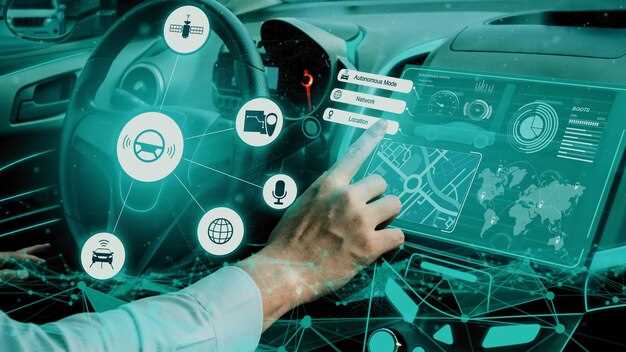
Audi’s Strategy for the Future of Mobility

As the automotive industry undergoes a profound transformation, Audi stands at the forefront of innovation, redefining the landscape of mobility solutions. The company’s vision encompasses a harmonious blend of advanced technology, sustainability, and user-centric design, positioning Audi as a leader in shaping the future of transportation. In a world increasingly focused on environmental challenges, Audi‘s commitment to electric mobility and autonomous driving solutions demonstrates its proactive approach to meeting the demands of modern consumers and regulatory frameworks.
Looking ahead, Audi is dedicated to creating intelligent mobility systems that not only enhance the driving experience but also integrate seamlessly into urban environments. The strategy emphasizes collaboration with technology partners and a focus on digitalization, ensuring that Audi remains agile in adapting to the evolving needs of its customers. By investing in research and development, Audi aims to pioneer cutting-edge technologies that will define the future of automotive mobility, while maintaining a strong emphasis on sustainability and reducing carbon emissions.
Through its innovative approach, Audi envisions a future where mobility is not just about transportation but a holistic experience that prioritizes safety, efficiency, and connectivity. As the company navigates the challenges of this transformative era, its strategic initiatives are set to redefine the meaning of mobility and establish new standards for the automotive industry, ensuring that Audi remains synonymous with excellence in future mobility solutions.
Integrating Electric Vehicles into Audi’s Product Line

Audi’s strategy for future mobility solutions places a strong emphasis on integrating electric vehicles (EVs) across its product line. This strategic shift is driven by a commitment to sustainability and innovation, responding to the growing demand for eco-friendly transportation options. Audi recognizes that the automotive landscape is rapidly evolving, necessitating a comprehensive approach to electrification.
As part of its future vision, Audi aims to introduce a diverse range of electric vehicles that cater to various consumer needs and preferences. By enhancing its existing models with electric powertrains and developing new EV designs, Audi seeks to ensure that all segments of its product line are represented in the electrification journey. This includes luxury sedans, sporty coupes, and versatile SUVs, all equipped with the latest electric technology.
To achieve these goals, Audi is investing heavily in research and development, focusing on battery technology, charging infrastructure, and software integration. The strategy involves not only creating high-performance electric vehicles but also ensuring they are connected and integrated within the broader digital ecosystem. This holistic approach will enhance user experience and create seamless interactions between drivers and their vehicles.
Furthermore, Audi is committed to reducing its carbon footprint throughout the entire lifecycle of its electric vehicles. This involves sourcing sustainable materials, optimizing manufacturing processes, and supporting renewable energy initiatives. Audi’s vision of the future is rooted in responsibility and innovation, ensuring that the transition to electric mobility is beneficial for both consumers and the environment.
In summary, Audi’s integration of electric vehicles into its product line is a strategic move towards a sustainable future. By embracing new technologies and prioritizing electrification, Audi aims to remain at the forefront of the automotive industry while addressing the challenges of climate change and consumer demand for greener alternatives.
Leveraging Autonomous Technology for Enhanced Urban Mobility
Audi’s strategy for future mobility solutions centers on integrating autonomous technology to address the urban mobility challenges of today. As cities grow increasingly congested, the need for innovative solutions becomes paramount. Audi aims to lead in this field by developing autonomous vehicles that not only enhance safety but also optimize traffic flow.
Autonomous technology is revolutionizing the way people navigate urban environments. By employing advanced sensors, artificial intelligence, and real-time data analytics, Audi’s vehicles can assess their surroundings, anticipate potential hazards, and make informed decisions. This capability significantly reduces the risk of accidents and improves overall traffic efficiency.
Moreover, Audi’s commitment to electric mobility further supports the environmental goals associated with urban transportation. By leveraging electric autonomous vehicles, Audi aims to reduce emissions and promote sustainable urban living. The strategy emphasizes creating a seamless integration of autonomous vehicles into existing public transportation systems, thereby encouraging a shift away from private car ownership and contributing to less congested cities.
Through partnerships with local governments and technology providers, Audi is actively exploring pilot projects and collaborations that test and refine its autonomous solutions. Such initiatives not only help in gathering valuable data but also in fostering community acceptance of these technologies.
In conclusion, Audi’s vision for urban mobility is rooted in the strategic use of autonomous technology. By enhancing safety, efficiency, and sustainability, Audi is poised to redefine the future of transportation in urban landscapes around the world.
Developing Sustainable Practices and Partnerships in the Automotive Sector

The automotive industry is undergoing a significant transformation as companies like Audi embrace sustainable practices to pave the way for the future of mobility solutions. This shift is not merely about the vehicles themselves but also encompasses the entire ecosystem, from supply chains to manufacturing processes.
To enhance sustainability, Audi is prioritizing the use of renewable materials in vehicle production. By adopting innovative techniques to incorporate recycled and bio-based materials, the company aims to reduce its carbon footprint while still delivering high-performance vehicles. This commitment to sustainability extends to the sourcing of raw materials, where partnerships with ethical suppliers are crucial.
Moreover, Audi recognizes the importance of collaboration with other industry players. Establishing strategic partnerships with technology firms, research institutions, and governmental bodies is essential for driving research and development in sustainable technologies. These collaborations not only expedite innovation but also facilitate the sharing of best practices across the sector.
Additionally, Audi is investing in renewable energy for its manufacturing plants. By transitioning to solar and wind power, the company aims to achieve carbon neutrality in its production processes, reinforcing its commitment to a cleaner future.
Finally, the focus on circular economy principles is a key element of Audi‘s strategy. By designing vehicles for end-of-life recyclability and promoting initiatives for vehicle reuse, the company is taking definitive steps towards minimizing waste and maximizing resource efficiency.
Through these sustainable practices and strategic partnerships, Audi is not only enhancing its competitive edge but also leading the way towards a more sustainable and responsible automotive industry for the future.